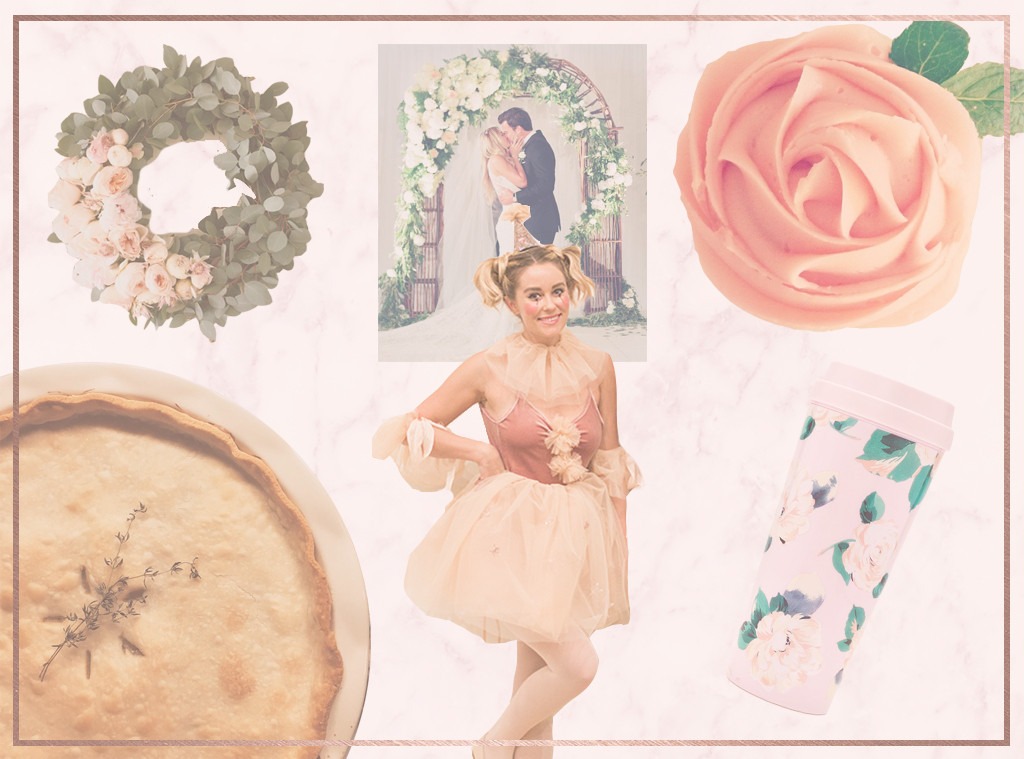 Instagram
InstagramBasic (adjective). 1) (especially of a female) characterized by predictable or unoriginal style, interests or behavior; 2) (of things) boringly predictable or original.
"Oh her? Don't even worry about her, girl. She's so basic."
Just reading the definition for the term Basic is like a lesson in the ultimate backhanded compliment. It stings. It burns. It's cringe-worthy. Unoriginal behavior? Could there be anything worse to be called in today's world?
And now, imagine that a major magazine (cough...Allure...cough), in tandem with millennials across the country, have just used that very word to describe you. Now you know what it's like to be Lauren Conrad.
Except that somehow, bafflingly, impressively, against all odds, it's LC who has the last basic laugh. It's LC who took that seemingly shameful branding and turned it from an insult to a business empire. She made millions off her very specific brand of basic—enough to earn her a mansion in the Pacific Palisades to go with a slew of other riches.
But to get there, we have to start at the beginning.
True Conradians will recall that the (former) reality star was exhibiting these so-called basic tendencies before it was even solidified into Urban Dictionary. On Laguna Beach and The Hills, she had bleach blonde hair, she wore an admittedly absurd amount of headbands, she loved polka dots, and did we mention the headbands?
But maybe those headbands give her secret powers, because things were going great. Lisa Love was totally wrong: she barely had to be The Girl Who Didn't Go to Paris for a month. She quickly became The Girl Who Garnered Thousands of Fans and Was Now Fielding Post-Hills Job Offers. She parlayed her role on the semi-scripted show into a New York Times-bestselling novel (yes...remember L.A. Candy?).
She started an eponymous clothing line for Kohl's. She launched The Beauty Department, a website dedicated to hair and makeup tips, with two of the industry's biggest beauty professionals. She started another, more upscale, fashion line called Paper Crown, which was seemingly based on millennial women's overwhelming desire to wear pastels and eyelets. She bought a million-dollar duplex in Beverly Hills. And, not that this should really matter, but she started dating a super cute law student—who would later become her husband.
All of this success was based on America's perception that she was not only sort of basic, but perfect. She was Pinterest personified, before we even knew that Pinterest was being invented. She was enormously calculating and strategic about what she shared with her adoring public, and nothing made it through her filter unless it fit into her aesthetic of pale pink, glitter, polka dots, and blondeness. She cultivated a life made of taking long walks down a picture-perfect seashore, drinking seasonal Starbucks lattes, dressing her dogs up in outfits that were just the right amount of ridiculous, holding up her perfectly-salted margaritas in front of the sunset, and always, always having a craft project on hand.
And she f--king loved it, you guys. She wasn't just perfect fake; there's little doubt that her real life was exactly like the one she allowed the world to see. She had a blast using all that glitter, and she was genuinely smitten with the sight of initials written in the sand.
But then the Allure article happened.
The premise wasn't even about Conrad. She was mentioned under the auspices of a section called "Typecasting," in which Allure presented four different stereotypes archetypes of women, listing their different interests and personality types and the famous women who seemingly embody that persona. Vanessa Hudgens got to be the "bohemian hippie," Leandra Medine was the "Street Stylist," and Lauren was..."Basic," along with the description "What's noteworthy about her style is its very plainness. Except to her. She swears those red-soled shoes are cutting-edge."
And the slight did not go unnoticed—by the masses or by Lauren herself, who tweeted "I definitely just got called a basic bitch!" It definitely wasn't one of the warm fuzzy moments of her career, but it seemed to spur on her success. Her career (and her net worth) has skyrocketed since that warm July, 2014 day.
She launched another company, The Little Market, which sells wares from artisan women around the globe. She has her own lifestyle website, which employs a staff of actual writers concocting stories under her very specific brand of tasteful simplicity. It embraces basic in every sense of the word, with tips on making homemade spice apple cider snow cones and DIY-ing a rose petal soap bar and wearing every type of plaid under the sun.
Her Instagram page has also taken the basic persona and ran with it. It's rife with images of pot pies fresh out of the oven and beautifully-arranged floral bouquets and bowls of tomatoes freshly picked from what we can only assume is an impeccably-organized home garden. And it works! There are 5.4 million people just dying to have round-the-clock access to her particular pastel filter, and who gain immense joy from all the sprinkles.
We'll never be able to know whether Conrad had plotted from the get-go to build an entire empire on her very specific taste, but either she's achieved something masterful. Career and financial successes aside, she's completely reclaimed a word that was once used to cut her down. She saw their basic and she raised them an entire online movement. She knew that her culturally snobby naysayers, with their all-black outfits and brags about not knowing how to cook, would rue the day that she threw that insult right back in their face.
Touché, Conrad.